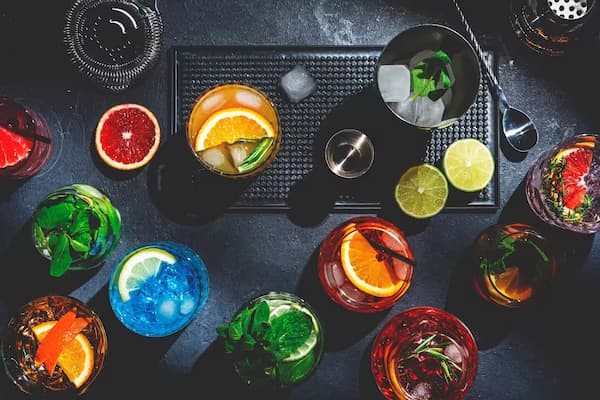Gentian
With Gentian you can make
We've got 1 cocktails that can be made with Gentian.
Find out what to make with Gentian
Q&A
What is the history and origin of gentian as a cocktail ingredient?
Gentian root has a long history of use that stretches back to ancient times, primarily for medicinal purposes due to its digestive benefits. Its origin as a cocktail ingredient can be traced to the 19th century in Europe, particularly in France and Switzerland, where it was first used to make bitters and aperitifs. The root's intense bitterness proved to be an excellent counterpart to the sweet and herbal ingredients in cocktails, leading to its widespread acceptance in the world of mixology. Today, gentian-based liquors like Suze and Salers, alongside bitters made with gentian such as Angostura and Peychaud's, are staples in bars around the globe.
What can you use as a substitute for gentian in cocktails if it's not available?
If gentian is unavailable, the closest substitutes that can mimic its bitter profile are other amaro or bitter liqueurs. A liqueur like Campari or Aperol, although fruitier, can offer the bitterness required, especially in cocktails like the Negroni or Americano. Wormwood or cinchona bark can also be used as they share a similar bitter quality, but they should be used sparingly due to their potent flavors. These substitutes can help achieve a semblance of the complexity and bitterness that gentian provides.
How is gentian typically served in cocktails?
Gentian is mainly featured in cocktails in two forms: as a key ingredient in bitter liqueurs or as part of aromatic bitters. Gentian-based liqueurs, like Suze and Salers, are often used neat, on the rocks, or as part of a cocktail mixture, providing a distinctive bitterness that balances sweeter ingredients. For instance, in a classic Negroni or an Americano, gentian-infused bitters or liqueurs add depth and complexity. The way gentian is served within cocktails is usually aimed at highlighting its unique bitter profile while complementing the drink's overall flavor palette.
What makes gentian a unique ingredient in cocktails compared to other bitters?
Gentian is unique due to its intensely bitter flavor profile, which is among the most bitter tastes found in nature. Unlike other bitters that may have a more balanced profile with herbal, floral, or citrus notes, gentian's primary characteristic is its profound bitterness. This potent bitterness makes it an essential ingredient for creating depth and contrast in cocktails, particularly in balancing sweetness and enhancing the overall complexity of a drink. Its distinctiveness lies not just in its flavor but also in its ability to stimulate the appetite, making it an ideal choice for aperitifs.
Are there non-alcoholic ways to enjoy the flavor profile of gentian?
Yes, it's possible to enjoy the unique bitter flavor of gentian without alcohol. One way is by incorporating gentian root into homemade non-alcoholic bitters, which can be added to mocktails or non-alcoholic aperitifs. Another option is to look for non-alcoholic spirits or aperitifs that are made with gentian or other bittering agents; these products are increasingly popular and widely available. These non-alcoholic alternatives allow for the creation of drinks that have the complexity and bitterness of traditional cocktails, but without the alcohol content, making them suitable for a wider range of occasions and preferences.
Ingredients like Gentian
Other Kitchen cupboards
How it works
Easily create your bar from the ingredients you have at home, and we'll show you what you can make with the ingredients you have to hand.
Once you've added this ingredient head to your My bar page and fill up everything else you have.
We'll also show you cocktails that can make by substituting what you have for one of the ingredients you don't, riffing on the original. Now go forth and create something delicious!


















































